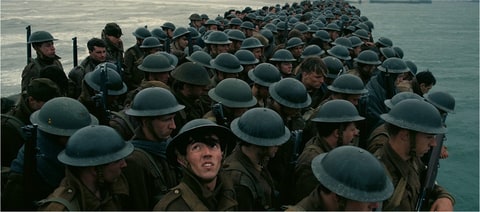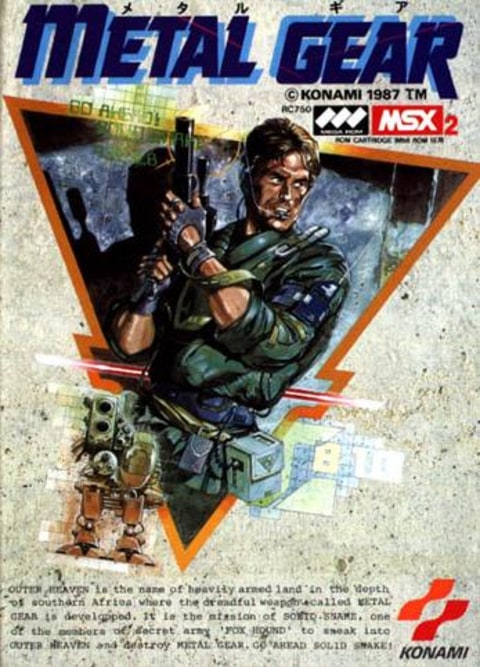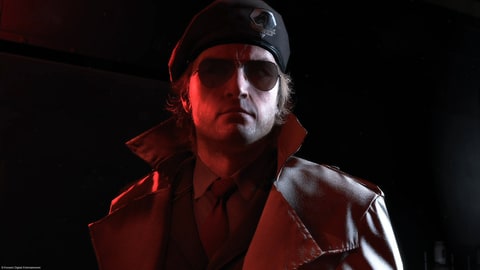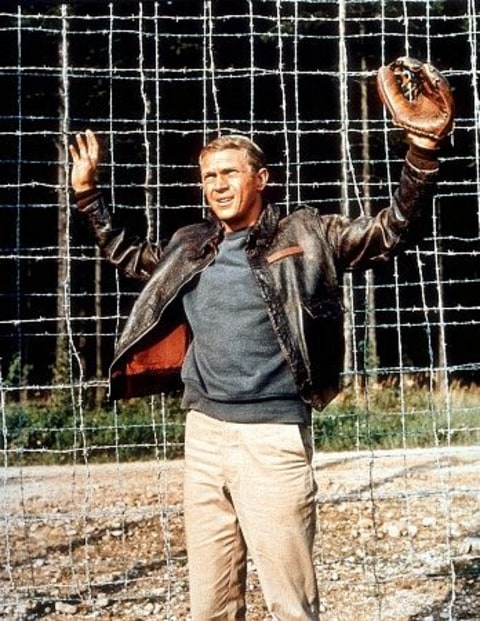Full article in next post...
Owner of PS4 Pro, Xbox One, Switch, PS Vita, and 3DS
Full article in next post...
Owner of PS4 Pro, Xbox One, Switch, PS Vita, and 3DS
Dunkirk gave birth to a new kind of war movie.
By refusing to rely on computer graphics, opting instead to create life-size sets and employ a large cast of extras, Christopher Nolan recreated the war movie construct. And because of that the movie is performing remarkably well, achieving the top spot at the U.S. box office in its first week and keeping that position for its second week, while grossing over $102 million in that same period.
Its approach to technology in movie making and refusal to rely on defeating one's enemies as a portrayal of war, reminds me in many ways of my work on Metal Gear and where I hope to see my next game go.
Dunkirk
The film is a sober depiction of the Battle of Dunkirk, which was a large-scale evacuation of the British and French army during the Second World War. It's an unconventional war movie in that sense too. You won't find the excitement of defeating the German army (in fact, you won't see the face of a single German soldier), instead, the focus is on escaping from the enemy.
Dunkirk has very little dialogue. Many soldiers go unnamed, and no attention is given to their pasts. It manages to capture the audience through the action of escaping, and the suspense born therein, a focus similarly found in Keaton and Chaplin movies.
The story is structured in three parts: land, sea and air. Land: Soldiers on the beach waiting for rescue (and French soldiers pretending to be in the British army to escape). Sea: a civilian boat captain that crosses the ocean to aid in the Dunkirk rescue. And air: Air force pilots that hold off the German army as it tries to interfere with the rescue. This three-part ensemble pulls the audience into the heart of the war zone.
The result is that the movie successfully depicts another facet of war, in which evacuation equates to victory. Through the movie, we learn that the 400,000 soldiers that evacuated before conflict could transpire are war heroes.
After the tremendous success of this movie, standard war movies that lean on the latest technologies and simply portray victory through conflict, may look a bit dated.
Dunkirk isn't the first war movie to focus on escape without conflict as its theme. The 1963 picture The Great Escape is based on a true story, and featuring an ensemble cast, it portrays the events behind a mass allied escape from a WWII German high-security POW camp. In the movie, killing your enemies with guns is not the answer. Escape is a form of resistance. These are the tactics that confuse the German soldiers and eventually lead the Allies to victory. It is an anti-war movie. Using The Great Escape as one source of inspiration, I came up with the idea of Metal Gear (1987).
Metal Gear
As I've shared many times in the past, the request from the corporate top was to create a war game. However, the hardware at the time didn't have the capability to recreate the front lines of battle. Instead, playing off the hardware limitations, I devised a game based on avoiding conflict and sneaking past enemies, the original stealth game: Metal Gear.
This was a time in games when even titles like Super Mario Bros., with a simplified character representation, and only two actions, jump and run, met with immense success. In 1962's early video game Spacewar!, it wasn't possible to create a human figure, so instead, players controlled wedge and needle shaped spacecraft against a sparse background of outer space. In the 1970's Pong, Speed Race and Space Invaders appeared and brought video games to the masses. However, the core player actions remained constant. Therefore, competition was coupled with these simple controls to foster emotional investment from the player. Whether it be shooting, racing or tennis, defeating an opponent, CPU or real, competition was the common key component. Conflict is a means to victory. A detailed explanation isn't required. All Mario needs to do to rescue the princess is defeat his foes.
When working on game hardware with limited capabilities, providing a bit of motivation for the player is all that is required for them to have fun. This same basic concept continues to apply to even the latest 3D and VR games.
 Dunkirk Warner Bros.
Dunkirk Warner Bros.
Dunkirk's success lies in its convincing portrayal of being inside a war zone, and trying to "escape," or in other words, "survive." This is certainly an extreme outlier in the war movie genre. In movies, the director has precise control over what the viewer sees, and this level of control has given birth to several masterpiece class "war movies without conflict." Recent examples that come to mind are Director Shinya Tsukamoto's film adaptation of Fires on the Plain, and László Names' Son of Saul.
So, is it possible to tell a similar story using the interactive medium of video games? My 30-year struggle to answer this question has been Metal Gear.
"Anti-war" and "Anti-nuclear weapons" were the consistent messages through the series. My parents' generation was born during WWII. My generation grew up listening to their firsthand accounts of war, and we also learned of the wretchedness and absurdity of war and nuclear weapons from the movies and books around us. Video games are a natural fit for "fighting" and "competition," but even so I felt that they should be able to promote an anti-war, anti-nuclear weapons message, and more so, that it was necessary. I also wanted to change the idea that games could only be about fighting.
 'Metal Gear' cover art Konami
'Metal Gear' cover art Konami
Through my interaction with users following the releases of Metal Gear, Metal Gear 2, Metal Gear Solid and MGS2, I learned something interesting. Why is our world this way? If war and nuclear weapons are atrocities, why do they continue to exist? Younger generations didn't know the answer.
I decided to portray the era that was the cause of this dilemma in MGS3 (2004). The game is set in 1964 amidst the U.S. and Soviet Cold War. Some young people aren't even aware that a political state known as the Soviet Union once existed. I felt it was my duty to teach them about this past.
What caused the U.S. and the Soviet Union, allies in WWII, to become enemies and build nuclear arsenals against one another? Enemies formed from man-made ideologies. Good and evil. There is no such thing as absolute justice or corruption. I wanted to show and have players experience the fates and thoughts of characters who are controlled by the changing status of good and evil across eras. That is why I made Big Boss, the "evil" enemy of the "right and just" Solid Snake in Metal Gear and Metal Gear 2, the hero of the story.
 MGSV: Ground Zeroes Konami
MGSV: Ground Zeroes Konami
I wanted players to experience what it is like to be called evil, just as Christopher Nolan did shortly after in Dark Knight (2008), in which Batman, the symbol of justice, takes upon the mantle of villain for the sake of Gotham City.
MGS: Peace Walker (2010) is set in Costa Rica 1974. Here I wanted players to think about what armed forces and nuclear armament mean in a country that has no military. If nuclear weapons have the power to destroy the world, then why is having them a deterrent? In the end of the story, the hero Snake, chooses to keep nuclear weapons at his Mother Base for this very reason.
In MGSV: Ground Zeroes (2014), the Mother Base built in Peace Walker is destroyed by an enemy force, imbuing the player with a sense of loss and a desire for revenge. A relentless enemy leaves the player with nowhere to run, and they are drawn into inescapable conflict.
The continuation, MGSV: The Phantom Pain, is the execution of that revenge. Players gather a fighting force and resources to build up an army and secure nuclear weapons as protection.
 MGSV: Phantom Pain Konami
MGSV: Phantom Pain Konami
As the player progresses through the game they feel their desire for revenge, and their sense of "justice," that has been a common thread through the series, begin to waver. Additionally, the online game mode offers players the choice to disarm their nuclear arsenal, with the goal of completely ridding the game world of nuclear weapons. As far as I know, this goal hasn't been achieved yet, but if we can't disarm ourselves in the real world, at least the fictional game world offers mankind, the creators of nuclear weapons, the unparalleled "experience" of making the conscious choice to create a nuclear free world. Through this experience, players will come to understand what it really means to take a stand against war and nuclear weapons.
Players feel the need to acquire nuclear weapons, but then players across the globe choose to disarm themselves. This experience and its process is the chief aim of Metal Gear.
Games in a post-Metal Gear World
Dunkirk, The Great Escape and Metal Gear, they all tell us that victory isn't defeating your enemies, but protecting life.
So, where are post-Metal Gear games headed?
 Steve McQueen in 'The Great Escape.' Mirisch Company
Steve McQueen in 'The Great Escape.' Mirisch Company
The following is a translated excerpt from Kobo Abe's short novel The Rope.
"The rope and the stick are two of humankind's oldest tools. The stick to keep evil at a bay, the rope to bring that which is good closer, both were the first friends conceived by humankind. The rope and stick were wherever humankind was to be found."
Fifty-five years have passed since the creation of the early video game Spacewar!, but video games are still primarily players with sticks fighting each other. They cannot break the curse of using sticks to keep evil away, or defeating enemies. I want to change this.
It's time for humankind to take the rope in hand. We are ready for a game not based on competition, but on the rope that will bring good to the player and make connections. We don't need a game about dividing players between winners and losers, but about creating connections at a different level. My current project, Death Stranding, aims to fulfill this goal.
It's been roughly 120 years since the advent of movies, and 59 for video games. We are still awash in a flood of games where defeating enemies is the focus. It's time for video games to achieve their Dunkirk, their The Great Escape. We need a game that maintains the essence and fun unique to the medium, but also offers a completely new type of experience. What's more, the interactive nature of video games means that this new experience will be deeper than movies or other media could hope to offer.
At the very least, this is what I believe, and I won't run from the challenge.
Owner of PS4 Pro, Xbox One, Switch, PS Vita, and 3DS
Still hoping deep down inside that Konami subcontract Kojima Productions for future Metal Gear Solid games ;..;